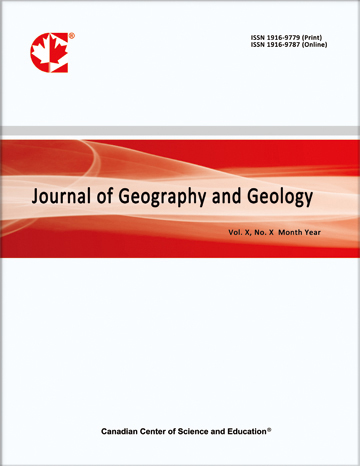Characterization of Structural Composition and Diversity of Vegetation in the Kpashimi Forest Reserve, Niger State, Nigeria
- Abdullahi Jibrin
- Idris Jaiyeoba
Abstract
Structural attributes and floristic composition of vegetation communities was investigated in the Kpashimi Forest Reserve, Niger State, Nigeria. The aim of the study was to describe the floristic composition and structure of the plant communities found in the study area. Biometric field inventory method; involving morphometric measurements, enumeration and application of allometric equations was employed for data collection. Vegetation variables including tree density, species diversity, tree girth, basal area, tree height, crown cover, shrub cover, and grass cover were measured within forty-eight sampling plots of 0.4096 hectares; distributed over the six vegetation physiographic units found in the area including riparian forest, savannah woodland, degraded forest, scrubland, grassland, and bare surface. For data analysis, the mean and coefficient of variation were determined from the data collected for each of the six vegetation physiographic units. The result showed that the Riparian forest is characterised by mean values of girth (1.16 metre), basal area (26.9 m2 ha-1) tree height (26.6 metre) and crown cover (68%). Savannah woodland recorded density of tree stand (0.0129 / m2) and diversity (13.75 Simpson’s diversity index), while Grassland and Bare surface classes are characterised by mean values of grass cover (89.9% and 51.1% respectively). Scrubland is characterised by mean value of shrub cover (64.8%); but with comparatively low trunk diameter, crown cover, tree height and tree density. The study area is thus characterised by a mixture of plant communities that vary in composition, diversity, heterogeneity, structure and complexity. This study presents acquired baseline information on the landscape vegetation structure and composition which could be useful for characterizing a typical savannah vegetation structure and composition. The data obtained could also provide a reference scenario against which future assessments could be compared; in order to understand the dynamics of vegetation communities.- Full Text:
 PDF
PDF
- DOI:10.5539/jgg.v5n3p75
Journal Metrics
(The data was calculated based on Google Scholar Citations)
Google-based Impact Factor (2018): 11.90
h-index (January 2018): 17
i10-index (January 2018): 36
h5-index (January 2018): 13
h5-median(January 2018): 15
Index
- BASE (Bielefeld Academic Search Engine)
- Bibliography and Index of Geology
- CiteFactor
- CNKI Scholar
- Educational Research Abstracts
- Excellence in Research for Australia (ERA)
- GeoRef
- Google Scholar
- LOCKSS
- NewJour
- Norwegian Centre for Research Data (NSD)
- Open J-Gate
- PKP Open Archives Harvester
- SHERPA/RoMEO
- Standard Periodical Directory
- Ulrich's
- Universe Digital Library
- WorldCat
Contact
- Lesley LuoEditorial Assistant
- jgg@ccsenet.org
